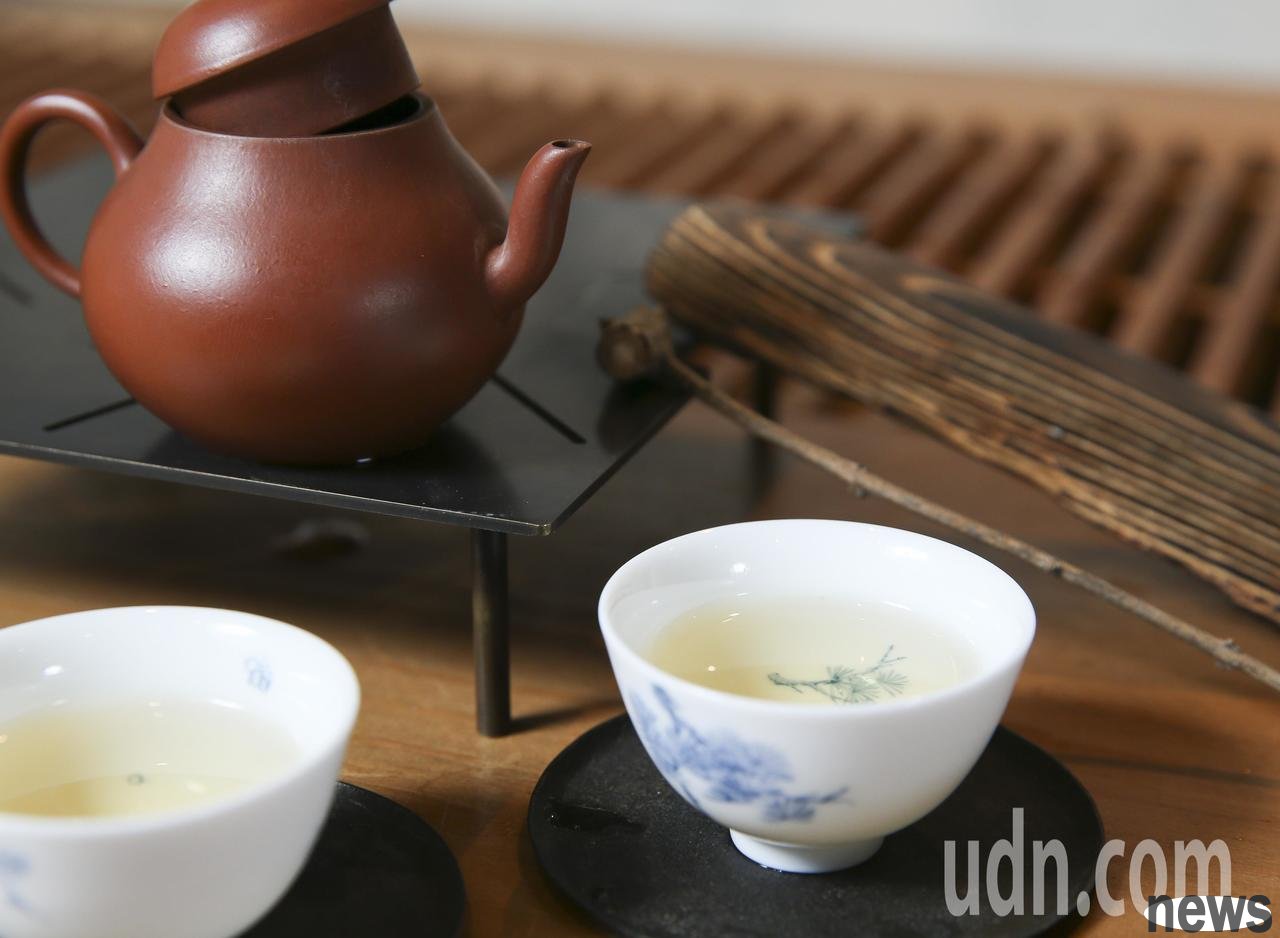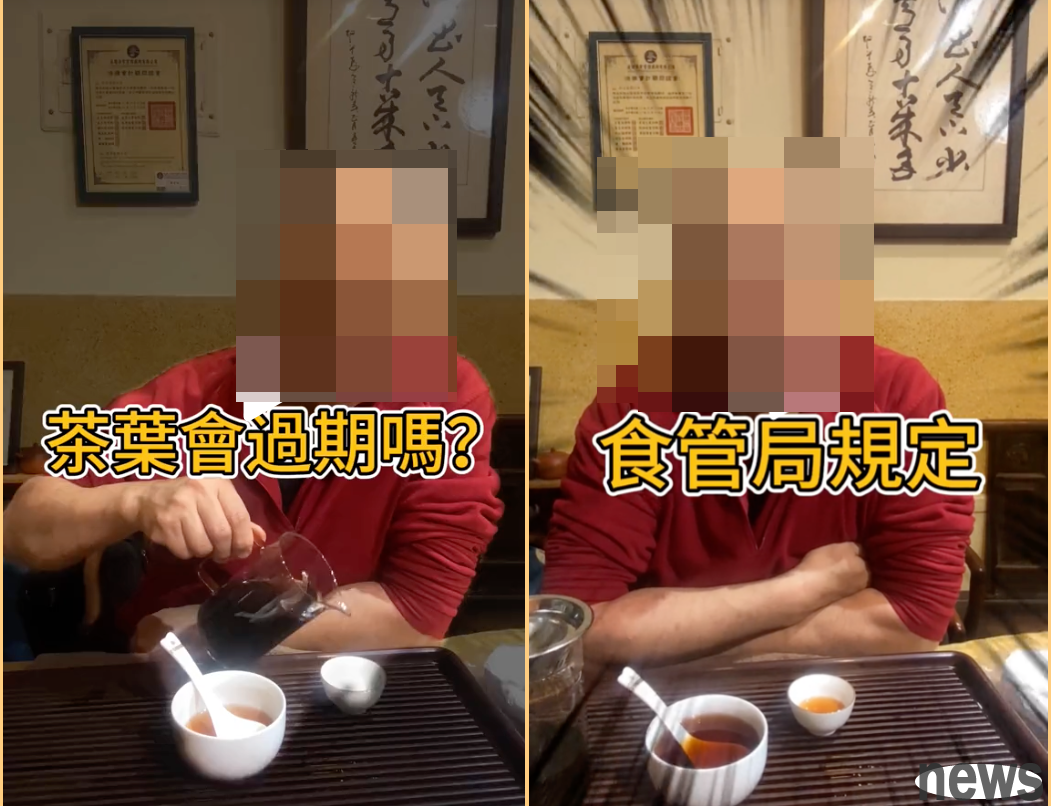 2024/5/9 You can know first:
2024/5/9 You can know first: (1) The verb mentioned the "Esophageal Administration" regulations, but there is no unit like the esophageal Administration in Taiwan, and the verb was wrong.
(2) The verb mentioned that "the esophageal administration stipulates that only steamed wine can be marked without a deadline", but the wine management agency is the Ministry of Finance, not the Food and Drug Administration of the Ministry of Fuli, and the statement is incorrect.
(3) The Food Safety Law stipulates that packaging foods are strictly marked as "effective dates", and Pu'er tea is no exception. The Food and Drug Administration calls on the public to "do not eat expired food."
The online "Will the tea leaves expire?" The film mentions that "the theory is that tea leaves do not have a shelf life", and taking Pu'er tea as an example, "It is actually drinkable after the deadline", "The old flavor and the traditional flavor come out, and the taste is quite good." However, the Food and Drug Administration reminds that as long as it is packaged food sold in Taiwan, it must be marked with a validity date "according to law", and Pu'er tea is no exception. It reminds the public not to buy or consume Pu'er tea without a validity date, or has expired validity date, so as to avoid food poisoning or physical incompatibility.
Online video: Will the Tea Leaf expire? Original posting version:Cat Ye can still be drunk after the period
The main video is circulated and circulated on the social platform:

The rumor mentioned that "the esophagus Bureau stipulates that as long as there is something at the entrance, there is only one thing in Taiwan that can be stored without deadlines." However, MyGoPen checked relevant credibility data. Taiwan does not have a unit like the "esophagus Bureau". According to the provisions of the Food Safety Law, "the supervisory authority is the supervisory authority in the central government; the direct municipal government is the direct municipal government; the county (city) government is the county (city) government." In other words, in the central government, it is the "Food and Drug Administration of the Ministry of Health and Welfare", and in the local government, it is the hygiene bureau of the municipal governments of various direct cities and county governments. There is no "esophageal bureau" in the central government and local governments of Taiwan.
Taiwan does not have an esophagus bureau. The Ministry of Alcohol Finance ManagementThe Food and Drug Administration responded to MyGoPen that according to Article 2 of the "Smoking and Alcohol Administration Law", "the competent authority is in the central government, the Ministry of Finance, the municipal government in the municipality of Zhili City, and the county (city) government in the county (city) government." The Food and Drug Administration is not the competent authority of the wine.
The verb mentioned that "theoretically speaking, tea leaves actually have no shelf life." MyGoPen called Zheng Weizhi, deputy director of the Food and Drug Administration. He said that as long as the food sold in Taiwan is sold in Article 22, Article 1, 7 of the Food Safety Law, as long as it is "packaged food", it must be marked as the validity date. Tea leaves are also a kind of food. Therefore, even Pu'er tea tiles, tea buns, or any packaging tea leaves are included in the provisions of the Food and Drug Administration. When people buy tea leaves, they can check whether the relevant tags have been accurately marked as the validity date. If not, they can go to the Food and Drug Administration. 1919 Special food safety inspection, or check with the local health bureau.
The validity period for packaging foods is validThe message mentioned that "as long as it is stored properly and placed in a dry place in a cool place, there will be no problem for 50 or 100 years." Since people often have the idea of vacuum packaging that can be stored for longer and more durable, Zheng Weizhi said that whether tea leaves need vacuum packaging or how to pack the most appropriately is not required. There are no special requirements in the law. How to pack and how long the validity date is, operators must evaluate the characteristics of the product and packaging technology themselves. , and how to store the product after it is sealed, etc. The validity date mentioned by ordinary practitioners refer to how long it can be stored under the conditions of complete packaging. Once it is sealed, the validity period will be shortened. The Food and Drug Administration has issued the "Guidelines for Evaluation of Valid Date of Commercially-Sold Packaged Foods" to provide relevant information for the operator as a reference.
MyGoPen inquired about the "Guidelines for Evaluation of Valid Date of Commercially-Sold Packaged Foods", which is defined as: [Shelf life]: Under specific storage conditions, the period when commercially-Sold Packaged Foods can maintain the value of the product, which is the range of time, such as "Shelf life: two years". [Expiration date]: Under specific storage conditions, the final period for commercially available packaged foods to maintain product value shall be the time point, such as "Expiration date: 00/00/00".
The specifications of different countries are different. The period of odor consumption cannot be verified. It should be regarded as the valid date.Since the comments specifically mention Pu'er tea, most of the Pu'er tea circulating in Taiwan is imported from China. The guidelines also mention the date labeling problem of imported packaged foods. Due to different regulations and requirements of different countries, there are different labeling meanings, such as "use by" and "expiry date", which are similar to the definition of "valid date" in China; in addition, "best Before" and "taste period" mean that food can maintain the best quality before this date, but does not mean that food is unsafe or deteriorated after this date. Therefore, when food operators mark the validity date of imported food, they can only ask the manufacturer to provide relevant information that is equal to the "valid date" defined in our country, which is different from the "best before" and "flavor period" marked on the packaging and the "valid date" marked on the original packaging. If relevant information that is equal to the "valid date" defined in our country cannot be provided, the "best before" and "valid date" dates shall be regarded as "valid date".
Zheng Weizhi emphasized that according to the policy setting and publicity of the Food Pharmacy Department, the policy setting and publicity concepts are "the products after the validity date are not eaten as much as possible"; the shelf life of food is one of the important keys of food safety, and do not eat them after the expiration date. Even if consumers experience food poisoning or physical inappropriate conditions during the shelf life, they can retain the remaining examination, report to the local health bureau, and use the inspection to clear their responsibilities. Zheng Weizhi reminds the public that although the shelf life is not a complete and absolute factor in food safety, the subsequent may include process problems, inappropriate operation, etc., and various conditions must be combined, but it is definitely safer to eat during the shelf life.
Pu'er tea is made by "post-fermentation" of microorganismsThe "Guidelines for Evaluation of Valid Date of Commercially Sale Packaged Foods" by the Food and Drug Administration also mentioned that the methods for evaluating valid dates by practitioners include bacterial methods, temperature, humidity, microbiological analysis, etc. in processes such as manufacturing and sales. According to the publicity of the Ministry of Agriculture, "Pu'er tea is a tea that has been 'post-fermented' by microorganisms. During the post-fermentation process, if the process is not properly prepared, it may be dyed by yellow koji bacteria." "Pu'er tea is divided into 'Pu'er raw tea' and 'Pu'er ripe tea'. Pu'er raw tea is made by natural morbidification (slow fermentation). Pu'er ripe tea is made by the moisturized and heat-fried method (rapid fermentation)". The Ministry of Agriculture even used the example of tea change to check whether the amount of Pu'er tea bacteria meets the hygiene standards, reminding the public that "all tea types" must be stored in low-temperature and low-moisture environments, not only Pu'er tea. Even though Pu'er tea is not fermented after microorganisms, if stored in an inappropriate environment, it will still be infected by poisonous microorganisms, which are harmful to health.
ConclusionThe essay mentioned that "the Esophageal Administration stipulates that only steamed wine can be marked without a deadline", but there is no unit like the Esophageal Administration in Taiwan, and alcohol is not managed by the Department of Food and Drug Administration. The Food and Drug Administration stated that as long as the packaged food sold in Taiwan is required to indicate the shelf life or validity date according to law, Pu'er tea is no exception. People should identify the label when purchasing it and eat it within the period. They said that "Pu'er tea has no shelf life" and "after two years, the old flavor and the scent will come out, and the more it is released, the more it becomes, the more it is," and other statements are wrong information. Pu'er tea is fermented by microorganisms such as black koji. During the process, the control of various microorganisms and subsequent bacteria are very important. In addition, Taiwan's climate is hot and humid, so be careful when preserving various tea leaves, including Pu'er tea.
(This article is reproduced from "MyGoPen" verification reference: https://www.mygopen.com/2024/05/tea.html)
※ Reminder: alcohol is prohibited. Overdose of alcohol is healthy
